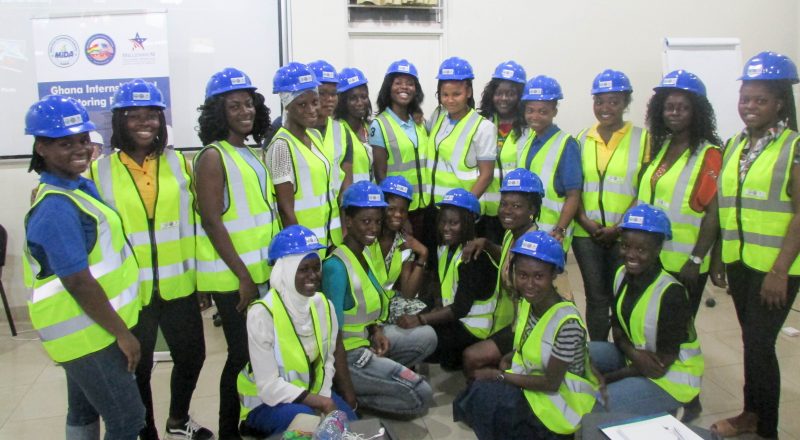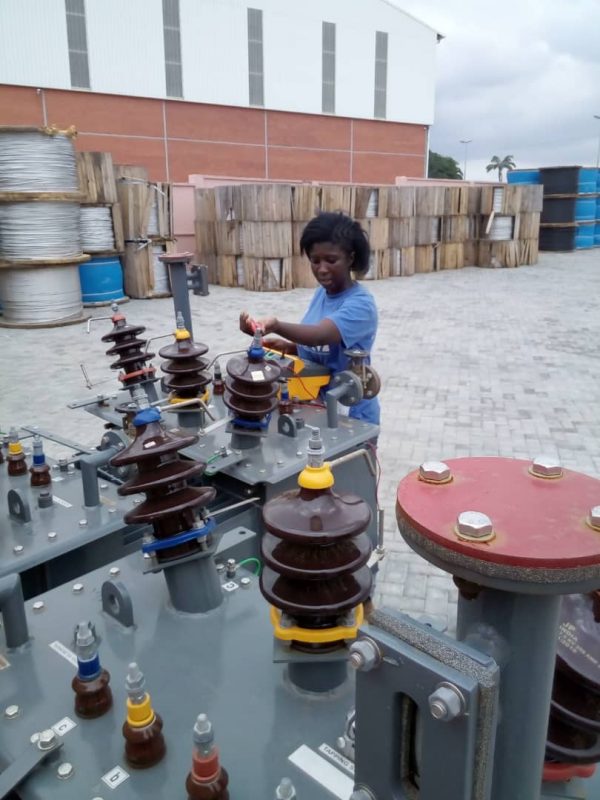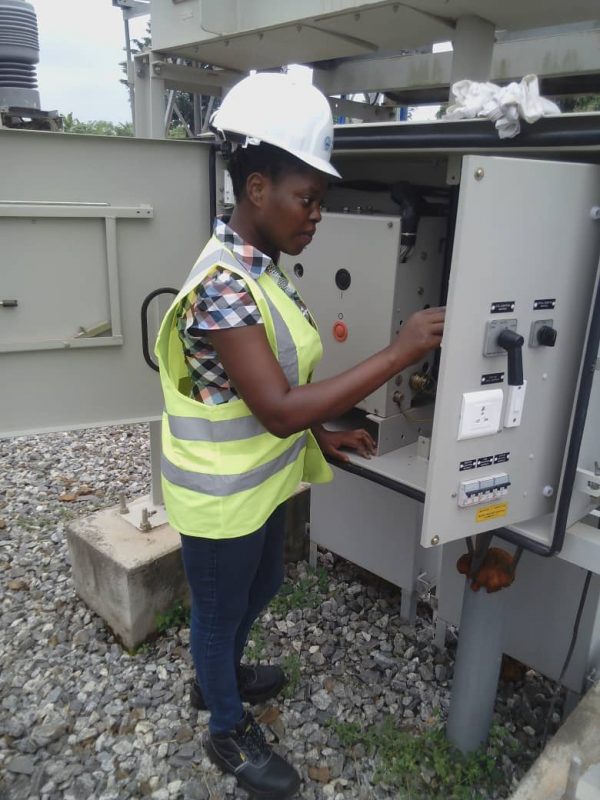
Participants of the Ghana Power Compact Internship and Mentoring Program—an MCC funded initiative as part of the Ghana Compact that aims to build economic opportunities for women in the country’s power sector.
At MCC, we know that one of the best ways to accomplish our mission of poverty reduction through economic growth is to empower women economically. No matter the sector we are investing in—power, education, land, or transportation—we look for ways to break barriers that prevent women from accessing economic opportunities to drive progress in their countries.
MCC is helping the Government of Ghana to transform its power sector through a $308 million compact that will provide more reliable power to Ghana’s businesses and households. Increasing women’s employment and decision-making in power utilities has dual benefits. Not only does it create opportunities for women to engage in the economy but studies also show that utility companies with more women in leadership positions perform better overall. MCC’s work in Ghana is one of our many country programs to emphasize women’s economic empowerment, thus aligning with the goals of the White House’s Women’s Global Development and Prosperity initiative, in which we are a key partner.
Challenges for women in Ghana’s power sector
In Ghana, the number of women graduating with Science, Technology, Engineering, and Math (STEM) degrees is increasing, but women’s employment in the power sector is not. Women attempting to enter the energy sector face barriers such as gender stereotypes and bias, and a lack of training, mentorship and networking. As a result, women who are graduating with STEM degrees and technical training certificates too often end up working in unrelated fields, underutilizing the skills they have developed. MCC is working to solve this supply and demand problem with a holistic approach to increasing women’s access to careers in the energy sector. It includes both an internship and mentorship program for young women in STEM, as well as human resource policy reform at the Electricity Company of Ghana (ECG).How training and mentorship can help
The Ghana Power Compact Internship and Mentoring Program (GPCIMP) is finding innovative ways to advance gender equality and women’s empowerment in STEM. Following a small pilot cohort in 2018 of 50 students, the program’s 2019 cohort included 186 female students from public universities and technical and vocational institutes throughout the country. The compact plans to reach 600 interns and 200 graduates by 2021. The students complete a two-month long internship with private and public companies, including ECG. Some of the companies that participated in the 2019 cohort were recruiting female interns for the first time. In addition to the practical, hands-on work experience gained, interns also participate in regular mentorship sessions to learn job searching and networking skills. Students are linked to female role models at prominent organizations such as Women in Engineering (WinE) of the Ghana Institution of Engineers; Women in Science, Technology, Engineering and Mathematics (WiSTEM); and the Ghana Academy of Arts and Sciences. The mentorship that they receive gives them the skills to overcome gender obstacles and gain professional connections in their chosen fields.

Students receive hands-on work experience as part of MCC’s Ghana Power Compact Internship and Mentoring Program.
MCC also supported the first Ghana Women in Energy Conference which brought together nearly 100 women professionals, representatives of power utility companies, and governmental and non-governmental institutions in the power sector to discuss issues and solutions for addressing barriers women face in the sector.
Policy reform for gender inclusion
In order to create a pipeline for women in STEM to enter careers in energy, MCC has been working with the ECG to develop a Gender and Social Inclusion Policy, which was approved in February 2020. When the policy was announced to the public, the Managing Director of the ECG, Mr. Kwame Agyeman-Budu said, “ECG will make concerted efforts to ensure that its strategies, policies, plans, activities, budgets, programs, projects, systems, and structures are promoting gender equality, diversity and social inclusion.” The policy commits to having a workforce comprising 40 percent women (currently 24.4 percent), with 40 percent of women in leadership positions (currently 11 percent) in the company by 2035. The policy also commits to zero tolerance of sexual harassment in the workplace, more gender equitable recruitment and hiring practices, and maternity and paternity leave. MCC also supported the development of an ECG gender action plan and the establishment of a Gender Unit to implement the newly designed policy and plan. All of these commitments signal a more intentional effort on the part of the ECG to create an enabling work environment for women.MCC’s investment also strengthened the capacity of female professionals. MCC hosted a series of trainings for the Power Queens’ Club of ECG which covered policy advocacy and networking and sponsored three women in leadership positions at the ECG to attend a three-day Energy Conference in South Africa.
By helping to improve working conditions for women at the electricity company and helping women’s mobility through the internship and mentorship program, MCC is creating an enabling environment for women in Ghana to enter the workforce in their chosen fields and to reach their full potential, which will in turn lift more people out of poverty.

